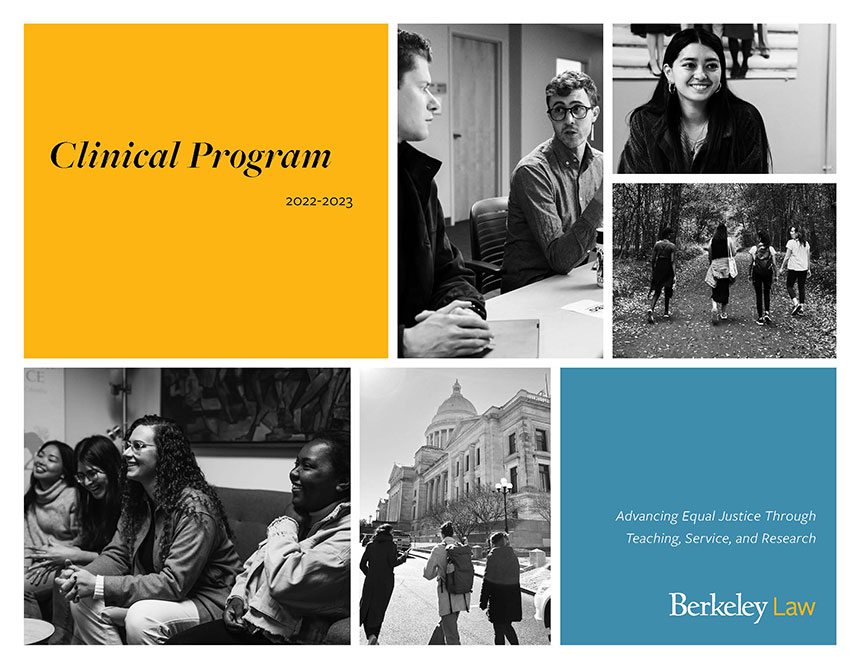As the Berkeley Law Clinical Program steps into an era of expansion, we are deepening our commitment to our mission of advancing racial, economic, and social justice while strengthening our infrastructure. We are fortifying our roots to support the program’s planned growth and increased collaboration across rich subject matter areas in policy, legal services, and other client-facing social justice projects.
Last year, 300 students completed a range of projects. They researched claims of race discrimination under California’s new Racial Justice Act; advanced environmental justice for California Native Nations; filed a petition with the United Nations on behalf of four imprisoned Vietnamese human rights activists; advised Central Valley entrepreneurs on intellectual property issues; helped abolish youth fines and fees in Arizona, Illinois, Montana, Texas, and Washington; assisted KALW Public Media with copyright issues related to a podcast produced by incarcerated people in California; passed a California bill that removes barriers from the criminal background check process for people applying to work at care facilities; and much, much more.
Over the next four years, we plan remarkable growth for the Clinical Program with the addition of three new in-house clinics and four clinical faculty members. This should allow 100 additional students to participate in clinics each year. This fall, we are conducting an open search for our first new clinic which will focus on achieving racial justice at the structural, systemic, institutional, and individual levels.
We are thrilled to announce the hire of Laura Riley as the director of the Clinical Program, a new role inaugurating a leadership model that brings in an experienced lawyer with a clinical background to spearhead the program’s administration and growth.
Together, we are grateful for the opportunity to lead a program that trains the next generation of skilled, ethical, and innovative lawyers committed to social justice.
View our Annual Report to learn how clinical faculty and students are working to advance social justice.
Sincerely,
Ty Alper, faculty co-director, Clinical Program
Roxanna Altholz, faculty co-director, Clinical Program
Rosa Bay, co-deputy director, East Bay Community Law Center
Laura Riley, director, Clinical Program
